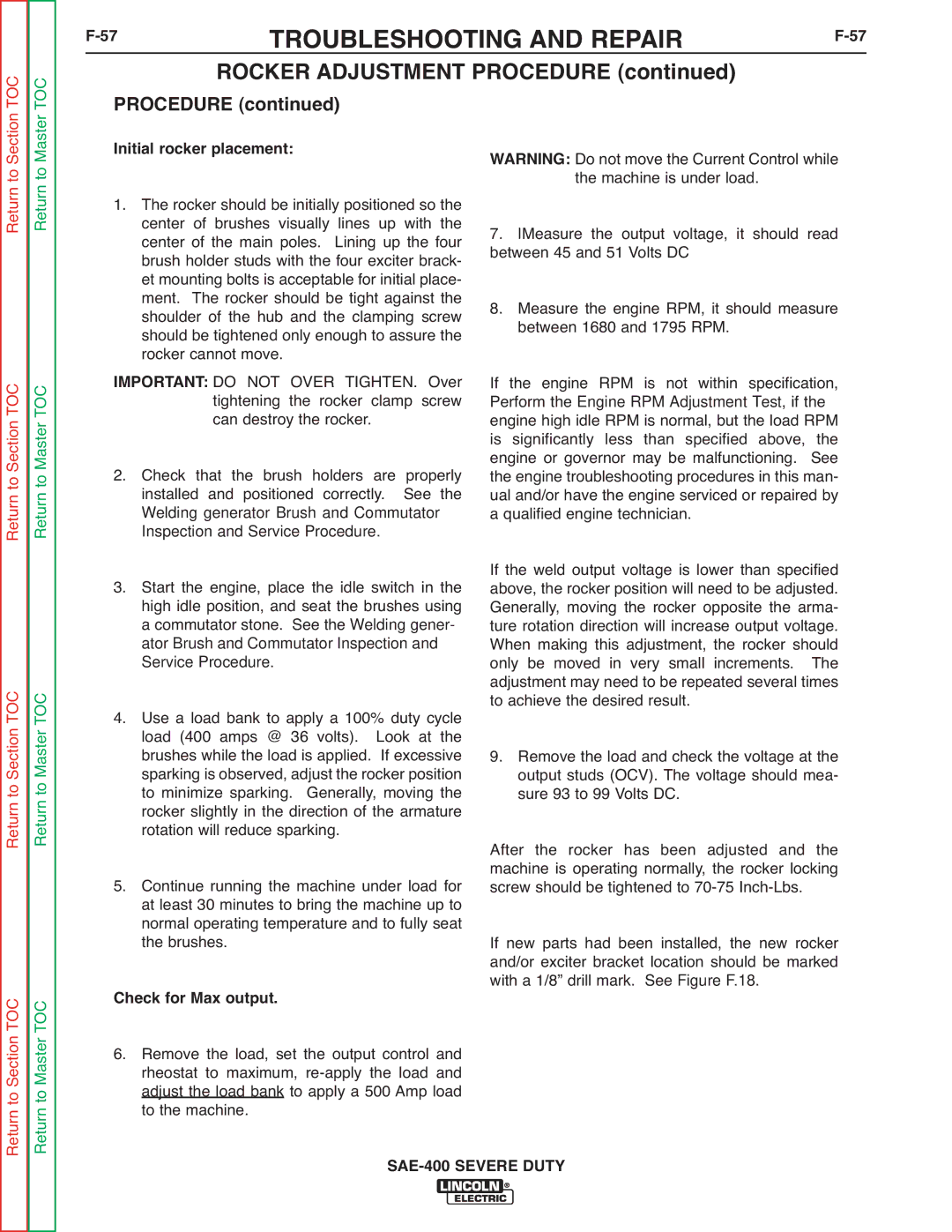SVM187-A specifications
The Lincoln Electric SVM187-A is a cutting-edge welding machine designed for professional welders and industrial applications. Known for its reliability and performance, it stands out in the competitive welding equipment market. This versatile machine is structured to handle various welding processes, making it a popular choice among users.One of the primary features of the SVM187-A is its multifunctional capabilities. It supports MIG, TIG, and Stick welding, allowing users to switch between different welding techniques seamlessly. This flexibility makes it suitable for diverse applications, whether working on automotive repairs, metal fabrication, or construction projects. Additionally, the machine is equipped with a robust power output, ranging from low to high amperage settings, enabling users to tackle a wide array of materials, including mild steel, stainless steel, and aluminum.
The SVM187-A incorporates advanced inverter technology, which ensures increased efficiency and reduced energy consumption. This technology leads to a more compact design, making the unit portable and easy to transport. The lightweight construction of the machine does not compromise its durability; it is built with high-quality materials to withstand the rigors of a professional workshop.
Another notable characteristic of the SVM187-A is its user-friendly interface. The intuitive control panel includes digital displays for precise settings adjustments, ensuring accuracy during operation. Beginners and seasoned welders alike can benefit from the clear and straightforward design, reducing training time and enhancing productivity.
Safety features are paramount in the SVM187-A's design. The machine is equipped with thermal overload protection, ensuring that it operates within a safe temperature range to prevent damage and promote longevity. Additionally, it features automatic voltage regulation, which maintains a stable arc even under varying input voltage conditions.
In summary, the Lincoln Electric SVM187-A is a versatile, efficient, and user-friendly welding machine suited for both professional and industrial applications. Its multifunctionality, inverter technology, and robust safety features set it apart from competitors, making it a reliable choice for welders seeking to elevate their craftsmanship while ensuring safety and efficiency. This machine represents the innovation and quality that Lincoln Electric is renowned for in the welding industry.

